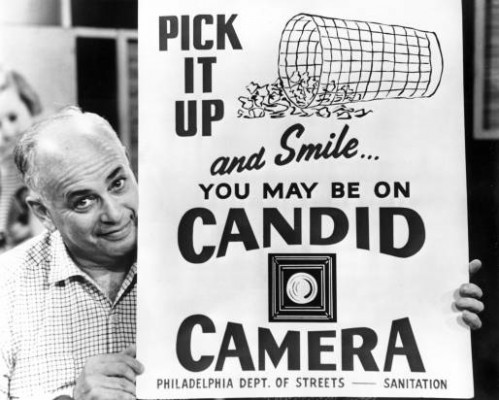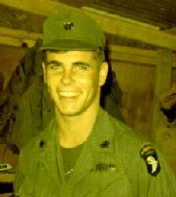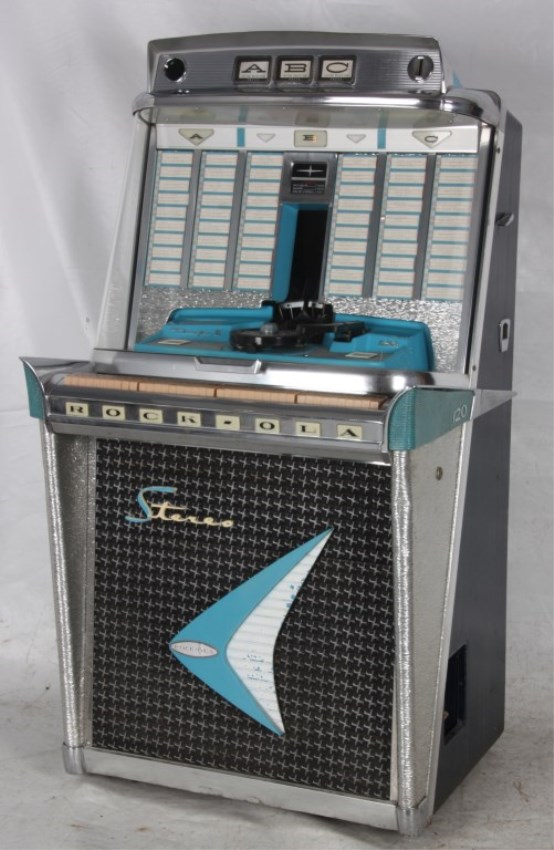
The 60s Official Site
"Where Music is Our Middle Name"
Quick Links
Your Daily Oldies Fix Top Ten Countdown Solid Gold Memories Jukebox Music
Vibration of a Nation Remember When Television of the 50s and 60s 60s Slang
Things You Just Don't Hear Anymore 60s TV Commercials Chickenman Episodes Woodstock This Weeks Number One Hits
The Early Years of Rock and Roll Vietnam War Myths
All the content menu is listed on the left menu border bar
Candid Camera
Candid Camera was a hidden camera television series created and produced by Allen Funt, which initially began on radio as Candid Microphone June 28, 1947. After a series of theatrical film shorts, also titled Candid Microphone, Funt's concept came to television on August 10, 1948. The format has appeared on network, syndicated or cable television in each succeeding decade—until 2004, as either a regular show or a series of specials. Funt himself hosted or co-hosted almost all of the TV versions until a 1993 stroke from which he never recovered. His son Peter Funt, who had co-hosted the specials with his father since 1987, became the producer and host.
The show involved concealing cameras filming ordinary people being confronted with unusual situations, sometimes involving trick props, such as a desk with drawers that pop open when one is closed or a car with a hidden extra gas tank. When the joke was revealed, victims would be told the show's catch phrase, "Smile, you're on Candid Camera." The show often played its hidden-camera pranks on celebrities as well: One episode had actress Ann Jillian (who is Lithuanian) scheduled to make a small donation to a Lithuanian charity. When police officers informed her a con artist was behind the charity, they convinced her to donate a much larger amount with the assurance that he would be arrested when he accepted the check. After the arrest attempt, Jillian was told the man was running a legitimate charity, a set-up that forced her into acting as though she had intended to donate hundreds of thousands of dollars all along. In another episode the show filmed the reactions of citizens after they saw the former President Harry S Truman walking down the street, occasionally stopping to ask the time. Candid Microphone was first heard on Saturday, June 28, 1947, at 7:30pm on ABC radio. The following week it moved to Sundays at 7:00 pm. Beginning in late September 1947, it aired Mondays at 9pm through October, then Thursdays at 8pm until May 1948 when it moved to Thursdays at 9:30pm. That series came to an end on September 23, 1948. Beginning June 6, 1950, Candid Microphone was broadcast by CBS on Tuesdays at 9:30pm, and that summer series, sponsored by Philip Morris, continued for three months until August 29. The announcer for the radio program was Dorian St. George (1911-2004). Funt brought his program to ABC television in 1948 and then briefly switched to NBC before moving to CBS in the fall of 1949 (for Philip Morris, with Ken Roberts as his announcer). The format moved to syndication in 1951 before returning to NBC in 1958 as a segment of Jack Paar's The Tonight Show. The segment reappeared in 1959 on CBS as a feature on The Garry Moore Show, before once again becoming a stand-alone show in 1960. Its longest uninterrupted run came on the 1960-67 CBS version on late Sunday evenings. Producer/host Funt was joined on stage by CBS veteran Arthur Godfrey the first season, Garry Moore Show announcer/sidekick Durward Kirby from 1961 to 1966 and Bess Myerson for the final season of the run. Buster Keaton appeared on the show; clips of his stunts were included in Thames Television's tribute to the comic actor. Among the annual winners was 1965's traffic cop Vic Cianca with the Pittsburgh Police who gained national exposure through the show and later appeared in Budweiser commercials as well as Italian TV and the movie Flashdance . This 1960-1967 run was arguably the most successful version of the show, and the show appeared in the Nielsen ratings during this era too; ratings were: 1960-1961: #7; 1961-1962: #10; 1962-1963: #2; 1963-1964: #7 Writer Woody Allen was one of the writers for the show in the 1960s and performed in some scenarios. Buster Keaton and Muhammad Ali also appeared in Candid Camera segments. Candid Camera returned in 1974 for a five-year run in weekly syndication, with Funt as emcee again and John Bartholomew Tucker and Dorothy Collins as early co-hosts. Fannie Flagg, one of Funt’s writers during the 1960s run, also shared emcee duties with Funt during the 1970s era, as did Phyllis George, Betsy Palmer and Jo Ann Pflug. The network TV version celebrated its 35th anniversary with an NBC
special in 1983. Four years later, a series of occasional Candid Camera specials aired on The show also aired a season in daily syndication (1991-92) with Dom DeLuise as host and Eva LaRue as co-host. Produced by Vin Di Bona, Funt authorized this version, but did not approve of the format or host. He stated in his biography "Candidly" (1994) that he deeply regretted his decision (which he made strictly for financial reasons) mainly because he didn't think DeLuise understood the spirit of the show or was an appropriate host, and also because he felt the bits were weak, uninteresting, and too preoccupied with incorporating the show's sponsor, Pizza Hut, into them in an overtly commercial way. A 1996 CBS program celebrating the 50th anniversary of the format (dating back to the Candid Microphone days) led to another series of occasional Candid Camera specials, and then to its return as a weekly CBS show with Peter Funt and Suzanne Somers as co-hosts. |
|





